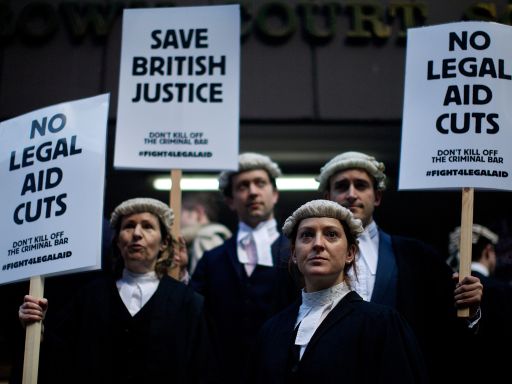In June 2015, thousands of people from around the world gathered at Runnymead in Surrey, to celebrate the 800th anniversary of the signing of the Magna Carter, a document which laid the foundations for much of modern parliamentary democracy. Of the Magna Carter, the Queen stated:
“The story of the British monarchy is intertwined with that of Runnymede and Magna Carta. The values of Magna Carta are not just important to the United Kingdom and the Commonwealth, but across the world. Its principles are significant and enduring.”
Indeed, David Cameron said that the Magna Carter had altered forever “the balance of power between the governed and government.”
He further stated:
“What happened in this meadow 800 years ago is as relevant today as it was then. Its remaining copies may be faded but its principles shine brighter than ever.”
“It is our duty to safeguard the legacy, the idea, the momentous achievement of those barons. And there couldn’t be a better time to reaffirm that commitment than an anniversary like this.”
The sad truth, however, is that this appears to be the exact opposite of what the Tory government stand for. Two of the most enduring clauses of the Magna Carter relate to the concept of access to justice for all.
39. No freeman shall be taken, or imprisoned, or disseized, or outlawed, or exiled, or in any way harmed – nor will we go upon or send upon him – save by the lawful judgement of his peers or by the law of the land.
40. To none will we sell, to none deny or delay, right or justice.
The importance of this cannot be understated. Giving every citizen the right to exercise and uphold their legal rights is a fundamental necessity in any successful democracy. But in May 2012, Royal Assent was given to the Legal Aid, Sentencing and Punishment of Offenders Act (LASPO) which eliminated legal aid funding for most cases involving welfare, housing, medical negligence, employment, debt and immigration. Defending the cuts, the Ministry of Justice said that the legislation would keep legal aid “where legal help is most needed, where people’s life or liberty is at stake or they are at risk of serious physical harm, face immediate loss of their home or their children may be taken into care, [while] reducing the £2.1bn per year legal aid bill for England and Wales.”
Legal aid funding to criminal defence lawyers had already been slashed at this point, through significant changes that saw hourly-rates replaced with fixed fees. These were then subject to further cuts of 10% in 2011. Addressing the risk this posed to society, the Criminal Bar Association (representing the interests of criminal defence practitioners) organised several protests in 2014, the first of their kind in the history of the criminal bar in the UK. Crown Court proceedings across the country faced disruption, as criminal lawyers staged walkouts leaving five out of eighteen of the Old Bailey’s courtrooms functioning before marching in protest to the Houses of Parliament.
Of course, a large proportion of the public condemned it. Internet comment threads were bursting with unsympathetic abuse towards lawyers. The fact of the matter, though, when faced with a legal difficulty of some sort, is that we inevitably have lawyers in mind when it comes to resolving them. But the impact of LASPO has, in the very words of Lord Chief Justice Thomas, seen our system of justice become unaffordable to most. And in most cases, it is the lowest paid and most vulnerable members of society who are barred – in practical terms – from seeking justice.
Under the Conservatives, legal aid for criminal justice has been savaged, and the very real danger that this presents is that state organisations with greater power and greater funds at their disposal have the means to prosecute defendants who lack the same means to defend themselves.
We’ve seen an increase in the numbers of inexperienced litigants-in-person, and in the family courts, this in turn has led to a highly inappropriate increase in victims of domestic violence being cross-examined by those accused of the violence.
We’ve seen fees introduced in bringing claims to the employment tribunal, the stated motive for this being to reduce vexatious and weak claims. In the year before the fees were introduced, there were roughly 60,000 cases within the employment tribunal arena. But in the year after, that fell to below 20,000. Interestingly enough, the proportion of unsuccessful claims remained stable and in relation to this The Justice Committee reported that many judges say they now hear no money claims at all.
“Prior to the introduction of fees money claims were often brought by low paid workers in sectors such as care, security, hospitality or cleaning and the sums at stake were small in litigation terms but significant to the individual involved. There are few defences to such claims and they often succeeded.”
Commenting on this during a debate at Westminster Hall on 11th January 2017, MP Justin Madders (Shadow Minister for Health) said:
“Have all those employers suddenly changed their behaviour and is everyone now getting paid correctly? No. What is far more likely is that those whose wages are being docked are simply saying, ‘Well, it will cost me more to go to a tribunal to recover this money than the amount I have lost, so I can’t afford to take that risk.'”
During his own input into this debate, MP Richard Burgon (Shadow Secretary of State for Justice) observed how the effects of LASPO – in removing legal aid from most areas of welfare law, debt, housing advice – has hit the most vulnerable people in society the hardest, leaving them with fewer places to turn for help. The transcript of this debate can be found here:
http://www.richardburgon.com/standing_up_for_access_to_justice
As was also observed, it wasn’t so long ago that Prime Minister Teresa May said:
“When you try to raise your concerns but they fall on deaf ears; when you feel locked out of the political and social discourse and feel no one is on your side, resentments grow”.
She also added:
“It is the job of government…to correct the injustice and unfairness that divides us wherever it is found.”
In a society where the wealthy can pay for justice, but those at the bottom end of the pay-scale are effectively de-motivated or even prohibited from upholding their legal rights through lack of financial means, we go further and further towards a society that nurtures the idea that people are simply like parts of a machine, which – when worn down and bothersome – can be plucked out and discarded.
The words of the Prime Minister may sound admirable. But until they’re put into action, they’re nothing but pretty sounding words. Because when the government chooses to prioritise spending over the fundamental right of its citizens to uphold their rights, then we really have to recognise that society is stepping on to a very dark and very dangerous path indeed.
If there’s one thing we need to recognise in the current political climate, it is that we cannot afford to allow the freedom to uphold our rights to be eroded by a wealthy and powerful elite who not only seem to believe that access to justice should be deprived from society’s low-paid and most vulnerable, but who have aligned themselves with a political belief that stands in utter contradiction to the principles of Magna Carter. Principles, which, only two years ago, were lauded for their relevance and importance. Principles that the Prime Minister made clear was our duty to uphold.
As Martin Luther King Jr said: “Injustice anywhere is a threat to justice everywhere.”




